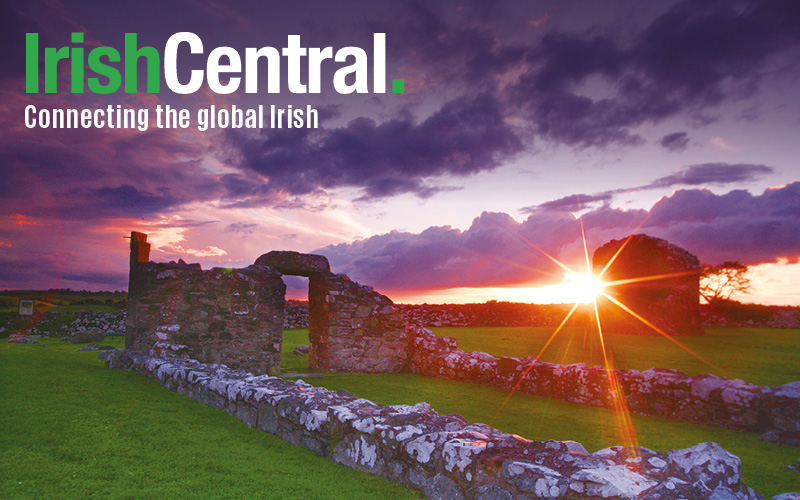A recent survey of people in all 34 European states has shown the Irish people are more concerned about terrorism than are people in countries such as France or Germany, places that have been targeted by acts of terrorism in recent months.
The Eurobarometer poll for Spring 2016, carried out each quarter by the European Commission, showed that immigration and terrorism ranked as the biggest concerns for European citizens. Although immigration remained the most frequently cited issue at 48%, it had dropped some 10% since last quarter.
Terrorism was cited 14% more often than it had been in the prior quarter, or by 39% of Europeans. The Irish people interviewed showed greater concern about terrorism, however, with 50% admitting it was their greatest concern in Europe. In contrast, despite the recent attacks, just 39% of the French said it was the most important issue to them.
The high level of concern about terrorism among the Irish is not shared by the government. After the terrorist attacks in Belgium earlier this year the Irish Minister for Justice and Equality Frances Fitzgerald said, “while an international terror attack on Ireland is possible, it is not considered likely.” She continued to say that the level of threat to Ireland was under constant review, however, and An Garda Síochána (Ireland's police force) continues to work with international partners to identify any possible threats and seek to prevent attacks.
Eurobarometer poll conducted in May shows immigration as top topic of concern across Europe https://t.co/z3XhN14MvT pic.twitter.com/RSSWPmsvN0
— migrationwatch (@migrationwatch) August 1, 2016
Irish people were not alone, however. People of Cyprus also expressed a high level of concern regarding terrorism, 50% said it was their biggest worry. They were followed by those in Romania (49%), Croatia (48%), Luxembourg (47%), and Portugal (40%). Terrorism was listed among the top two concerns in every member state except Greece.
Immigration was also among the top two concerns in every member state except Portugal. Compared to the winter 2015 report, it was the primary concern in only 20 member states rather than the 27 that registered it as the main at that time. The countries most worried by immigration were Estonia (73%), Denmark (71%), and the Czech Republic, Latvia and Hungary (all 67%). Excluding Portugal, immigration is the second biggest concern in every other country included in the survey.
Listed among the other concerns of European citizens were the economic situation (19%, down 2%), the state of member states' public finances (16%, down 1%) and unemployment (15%, down 2%).
Read more: 86 Syrian refugees to arrive in County Mayo for resettlement
The survey also showed a negative perception of migrants coming from countries outside of the EU, with six out of ten saying they regard it negatively compared to six out of ten who have a positive outlook on migration between EU member states. In total, 79% of Europeans are in favor of "free movement of EU citizens who can live, work, study and do business anywhere in the EU."
Standard Eurobarometer 85 - Majorities in all 28 member States in favour of "free movement of EU citizens" in the EU https://t.co/qB7zyfOVT4
— EuroBarometer (@EurobarometerEU) July 29, 2016
Despite the interviews for this survey being carried out over the period in which the UK people went to the polls to decide to leave the EU, a higher percentage of those spoken to by the Eurobarometer had faith in the EU compared to those who had faith in their national government. The number of Europeans who say they trust the European Union has, in fact, gone up to 33% while the average level of trust in national governments is stable at 27%.
The survey consisted of face-to-face interviews with 31,496 people across 34 European countries and territories carried out between May 21 and May 31. The Eurobarometer survey assesses Europeans’ attitudes towards the EU, as well as citizens' main concerns and perceptions of the economic situation.
This weekend, the Irish Minister of State for Equality, Immigration and Integration, David Stanton, revealed that details of a new strategy for integrating migrants into Irish society will be published this fall.
Speaking at the National Annual Convention of the Ahmadiyya Muslim Association, established in Ireland in 1992, Stanton stated that it is “important for politicians from all parties, and other leaders in our community, to engage in a meaningful and open way with the representatives of the various communities from which the fabric of Irish society is now woven.”
The Irish government is currently believed to be establishing a new state agency which can monitor airline passenger records for suspected terrorists.




Comments